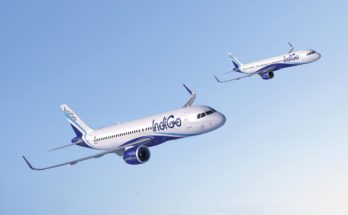The tensions between rivals Russia and Ukraine have strained relations between the two nations. Prior to the unrest in the Donbass and the annexation of Crimea, the Russians and Ukrainians had dealings in many areas. Those days seem to be long in the past. However, there is one sector that still shows signs of collaboration: space.
Space is an area very close to the hearts of the Russian and former Soviet people. The Russian Space Agency Roscosmos, for example, has been launching astronauts and cosmonauts to the International Space Station since NASA’s space shuttle was retired in 2011. It is therefore not surprising that despite the current political climate, there is some teamwork within the field of space.
Enter Sea Launch
Sea Launch was founded in 1995. It was originally a consortium of companies from Norway, Russia, Ukraine and the United States, with Boeing managing. The program launches payloads destined for space in a unique arrangement. Rather than use a land-based launch center, Sea Launch uses a repurposed mobile oil drilling rig to launch rockets. The company’s last launch was in 2014.
The business has had a tumultuous history, with some launch failures and bankruptcy. The S7 Group, the Russian parent company of S7 Airlines, bought Sea Launch in 2016 and the deal was finalized in 2018. Despite being a Russian entity, Sea Launch is still very dependent on Ukraine.
The launch vehicle used by Sea Launch is a Zenit 3SL, which is of Ukrainian origin, and its first two stages are built by Ukraine’s Yuzhmash. The upper stage is built by Russia’s Energia. Information is scarce; however, S7 said in October 2018 that three of these rockets are currently on order and are in various stages of completion.
The fact that there is a Zenit order and it is being fulfilled shows signs of a rare cooperation between Russia and Ukraine. Marine gas turbines, for example, are not being shipped to the Russian Navy from Ukraine’s Zorya-Mashproekt. There had been evidence of collaboration between the countries on the Antonov An-148, but that is reportedly no longer the case.
Forecast International projects that Sea Launch will obtain a Zenit in the near term and that launches will resume. There is talk about finding a new launch vehicle, specifically a variation of the Soyuz, to launch payloads; however, development will take time. Until then, the Russia-Ukraine collaboration will continue.
Carter Palmer has long held a keen interest in military matters and aviation. As an analyst for Industrial & Marine Turbine Forecast, Carter specializes in examining key gas turbine programs for electrical power generation, mechanical drive, and marine propulsion applications. He is also responsible for updating the reports and analyses within the Space Systems Forecast – Launch Vehicles & Manned Platforms and Space Systems Forecast – Satellites & Spacecraft products.




